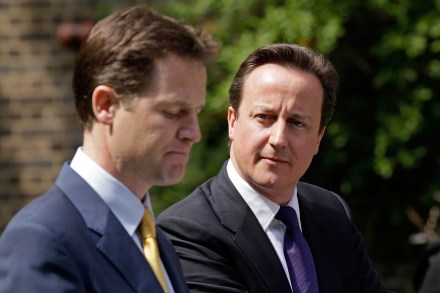Hurd weighs in on the 55 percent debate
Plenty of eyes on the Tory grandees at the moment. I mean, the right of the party isn’t exactly delighted with the LibCon coalition – so the search is on for figureheads to lead the resistance. Which is why Andrew Neil’s interview with Douglas Hurd on Staight Talk this weekend is worth paying attention to. As it happens, Lord Hurd is quite complementary towards David Cameron and his role in organising the coalition. Here’s the actual quote: “I think it was a brave thing to do. It might have gone terribly wrong, but he went straight for it and he was completely straightforward in saying this is what this is,


















